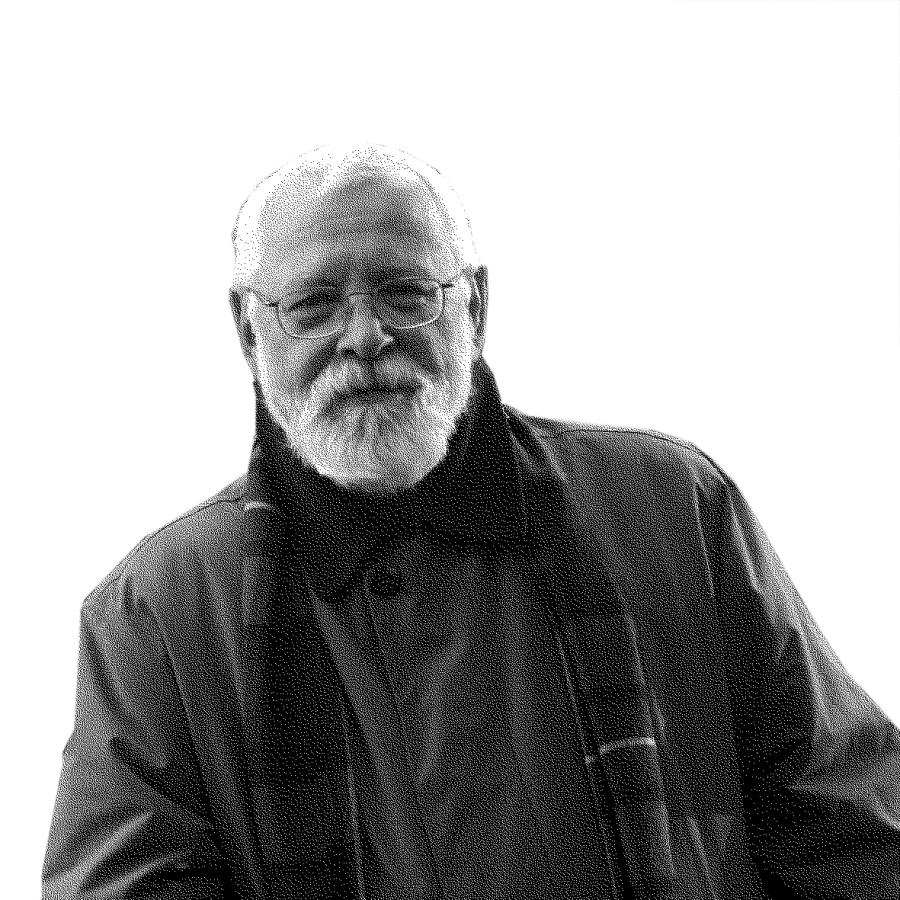Krzysztof Droba (1946-2017)
He was one of Poland’s most original, even charismatic music critics and theorists. The latter discipline is all too frequently approached very formalistically; but to Droba music theory was fundamentally related to music practice, that is, to composition and teaching. On a deeper level, theory was for him the rational contemplation of music, which implies not only an exploratory and analytic stance, but also the need for aesthetic, psychological, and especially emotional involvement. For Droba, music was a serious matter. The essential category was that of experience, since contact with art is a form of experience, meant to change human minds and hearts for the better. True art is always work for the good, which leads to understanding others and of who we are ourselves. Krzysztof sought for the human behind the music: for the composer who created it, the performer, and the listener, who are also its co-creators in a way. In the music he traced their and his own sensitivity, ways of thinking and spiritual directions.
He graduated from Cracow’s PWSM (State Higher School of Music; degree in 1971), and remained associated with his alma mater (now known as the Academy of Music) throughout his life. He taught lectures (in, among other, music works and 20th-century music history, BMus and MA seminars. The MA theses in music theory that he supervised won several awards and distinctions in the Nationwide Competition for Music Academy Master’s Theses in Gdańsk. He brought up several generations of composers, theorists, and music teachers.
There is no exaggeration in the statement that Krzysztof’s special element and passion was composing… festivals. He initiated such events, crucial to music culture in Poland, as “Young Musicians to the Young City” in Stalowa Wola (1975-1979), “Musical September at the Castle” in Baranów Sandomierski (1983-1986), and “Collectanea” in Sandomierz (1988-1989). In 1989 he initiated the series of Polish-Lithuanian Musicological Conferences. In the field of new music he was, for some years, the only expert on, and ambassador of, contemporary Lithuanian music in Poland. These efforts were recognised in 1995 by the President of the Republic of Lithuania, who decorated Droba with the Order of the Lithuanian Grand Duke Gediminas (“for contribution to the State of Lithuania, her culture, the arts and science, on the occasion of February the 16th – the Day of the Restoration of the State of Lithuania”).
Membership of, and activity in the Polish Composers’ Union (PCU) were extremely important for Krzysztof. He was a member of the Managing Board from 1995, and PCU’s vice-president in 2003-2007. In 1997-2016 he uninterruptedly served on the programme board of the ‘Warsaw Autumn’ International Festival of Contemporary Music, contributing to building the Festival’s prestige, and co-creating unforgettable ‘Warsaw Autumn’ events, as well as shaping the reception of contemporary music in Poland, promoting composers and individual works. In 1997 the PCU presented him with its Award for his musicological achievements and for inspiring major phenomena in European culture.
Krzysztof Droba’s output as a scholar and music critic is vast, and comprises papers presented at numerous musicological and music theory conferences in Poland and other countries (incl. Bulgaria, Germany, Slovakia, Spain, the UK, Lithuania, and Latvia), numerous reviews and articles (printed in, among others, ‘Ruch Muzyczny’ and the ‘Warsaw Autumn’ programme books), as well as collective monographs (published, among others, by the Academy of Music in Cracow and the Lithuanian Academy of Music and Theatre in Vilnius), editorial work (incl. PWM Edition’s Programme Board), and serving on competition juries. Droba dedicated particularly numerous texts to such composers as Vytautas Bacevičius, Roman Berger, Henryk Mikołaj Górecki, Charles Ives, Eugeniusz Knapik, Bronius Kutavičius, and Krzysztof Penderecki. The choice of these names was by no means accidental and resulted from his personal commitment as well as a shared understanding of the musical ethos.
Of special note among his numerous accolades are: the Honorary Medal ‘For Integral Humanism’, granted to him on the 10th anniversary of Lithuania regaining independence for promoting and furthering the value of human primacy in all areas of public and private life (2000); the Silver Medal for Merit to Culture – Gloria Artis (2005); the Gold Cross of Merit (2007), and the annual Award of the Minister of Culture and National Heritage (2008).
